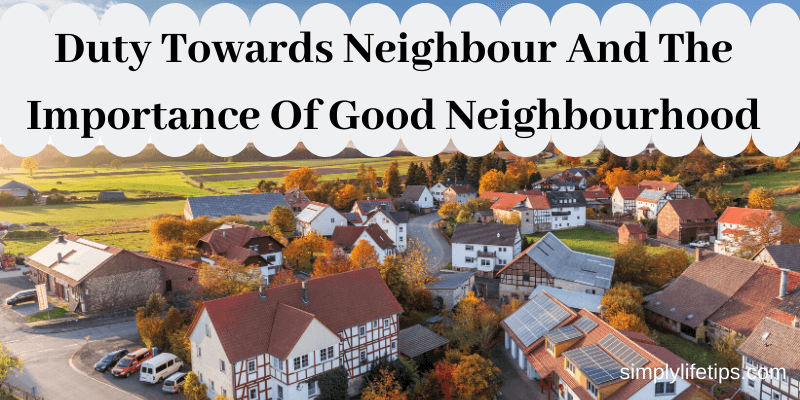Do you know that forgiveness is not just a virtue but a powerful catalyst for your own well-being and peace of mind? In a world often marred by trauma, heartache, and the irreplaceable moments lost to negative experiences, forgiveness emerges as a beacon of hope. It can be undeniably challenging to extend forgiveness when we reflect on the pain and suffering caused by certain events, but the truth is that forgiveness has the potential to transform not only our individual lives but also the world at large.
This journey into the profound concept of forgiveness invites us to explore its myriad benefits and the far-reaching impact it carries. When we hold onto grudges and resentments, our minds become cluttered with negativity, often leading to an array of problems. So, join us as we delve into the remarkable power of forgiveness, uncovering the path to healing and the promise of a more compassionate and harmonious world.
What is Forgiveness?
Forgiveness is the act of letting go of anger, resentment, or any negative feelings towards someone who has wronged you. It involves pardoning their actions, releasing the desire for revenge, and choosing to move forward with understanding and empathy. Forgiveness doesn’t necessarily mean condoning or forgetting the wrongdoing, but rather freeing oneself from the emotional burden and allowing the possibility of healing and reconciliation. It is a powerful and liberating choice that can promote inner peace, improve relationships, and contribute to personal growth.
Forgiveness is not just an act of kindness; it’s a profound gift you can give to yourself, a means to reclaim your peace of mind.
When someone inflicts harm upon you through words or actions, do you find it in your heart to forgive?
Or do you choose to harbour that anger indefinitely?
The path to a tranquil and harmonious life often lies in the ability to forgive. By forgiving those who have wronged us, we release the burdens of resentment, grudges, and hatred that weigh us down. Failure to do so is akin to injecting poison into our very being, allowing anger and negativity to poison our thoughts and our existence.
Do you know you can manage Anger with smooth Steps?
Remember, you forgive a person else for you.
Benefits Of Forgiveness
Forgiveness offers a multitude of benefits that extend far beyond simply letting go of negative emotions. Here are some of the key advantages of embracing forgiveness:
- Improved Mental Health: Forgiveness can reduce symptoms of anxiety, depression, and stress. Letting go of grudges and resentment can lead to a more positive outlook on life.
- Enhanced Emotional Well-being: Forgiveness frees you from carrying the heavy emotional baggage of anger and hatred. This emotional release can lead to increased happiness and a sense of inner peace.
- Better Physical Health: Research suggests that forgiving others may have positive effects on physical health. It’s associated with lower blood pressure, improved heart health, and a stronger immune system.
- Improved Relationships: Forgiveness can repair damaged relationships. When you forgive someone, it often opens the door to communication and reconciliation, fostering healthier and more positive connections with others.
- Personal Growth: Forgiving allows you to grow and learn from difficult experiences. It can enhance your resilience and emotional intelligence.
- Reduction in Hostility: Letting go of anger and resentment reduces hostility and can lead to more harmonious interactions with others.
- Stress Reduction: Forgiveness can reduce the chronic stress that holding onto grudges can cause. This, in turn, can lead to a lower risk of stress-related health issues.
- Increased Empathy: Forgiveness often involves understanding and empathizing with the perspective of the person who hurt you. This can enhance your ability to see things from different viewpoints.
- Enhanced Self-esteem: Forgiving others can boost your self-esteem and self-worth as you demonstrate strength and maturity in handling difficult situations.
- Spiritual Growth: Forgiveness is a common theme in many spiritual and religious traditions. It can be a pathway to spiritual growth and a sense of inner fulfilment.
- Positive Outlook: Letting go of grudges and practising forgiveness can lead to a more positive and optimistic outlook on life.
- Freedom from the Past: Forgiveness liberates you from being stuck in the past. It allows you to focus on the present and the future instead of dwelling on past grievances.
In summary, forgiveness is a transformative and healing process that offers a wide range of physical, emotional, and interpersonal benefits. It’s a powerful choice that can lead to a more fulfilling and peaceful life.
The Power Of Forgiveness: The Parable Of Healing And Growth
Forgiveness is the act of offering a gift to yourself – the gift of releasing resentment and moving forward without reservation.
Throughout our lives, many of us grapple with recurring patterns that seem to haunt us. The key lies in our ability to discern, to be wise enough not to allow such events to cross our paths again.
In some cases, it’s advisable to hit the metaphorical “delete” button on friendships with individuals who perpetuate these negative patterns. However, we must acknowledge that it’s not always feasible to entirely remove certain people from our lives.
Equally important is the concept of self-forgiveness. There’s no benefit in relentlessly berating ourselves for being deceived or taken advantage of. Instead, we should extract valuable life lessons from these experiences and propel ourselves forward.
Self-forgiveness, admittedly, can be a challenging endeavour. It’s often difficult to view ourselves objectively, to gain insight into our own issues. In such instances, seeking external help, whether through therapy, counselling, or confiding in a trusted friend, can be as vital as forgiving others. It’s through these processes that we can ultimately heal, grow, and continue our journey towards a brighter and more forgiving future.
Bible Quotes About Forgiveness
The Bible is full of messages about forgiveness. Some selected verses are below.
In Matthew 6:14–15, we are reminded of the importance of forgiveness in our daily prayers and worship: “When you forgive others for their wrongdoings, your heavenly Father will extend forgiveness to you. Conversely, if you hold onto the sins of others, your Father will not forgive your transgressions.”
In Matthew 5:23–24, the message continues, emphasizing the need for reconciliation before worship: “Therefore, when you approach the altar to offer your gift and remember that your brother holds something against you, pause your offering, seek reconciliation with your brother, and then present your gift.”
These verses prompt us to reflect on the sincerity of our prayers and the state of our hearts during worship. Have there been instances when anger or thoughts of revenge tainted our worship? The verses make it clear that divine acceptance of our offerings is contingent on a heart free from grudges. Can we expect our prayers, emerging from a mind filled with anger, to be heard?
Luke 6:27–29 reinforces the principle of love and forgiveness: “To those who listen, I say: Love your enemies, perform good deeds for those who harbour hate, bless those who curse you, and pray for those who wrong you. If someone strikes you, offer the other cheek.”
In Luke 6:37, we are reminded not to pass judgment: “Do not judge, and you will not face judgment. Do not condemn, and you will not be condemned. Extend forgiveness, and forgiveness will come your way.”
These verses collectively encourage us to approach worship and prayer with hearts brimming with love, forgiveness, and compassion, demonstrating that these qualities are not just expected but essential for our spiritual journey.
In today’s world, it’s all too common for people to pass judgment on others without having all the facts. Social media, in particular, has become a platform where snap judgments and baseless comments can quickly spread like wildfire. However, it’s crucial to remember that making hasty judgments or sharing baseless comments can have serious consequences, especially for innocent individuals.
We should always strive to avoid rushing to judgment about others without a comprehensive understanding of the situation. Jumping to conclusions can lead to misinformation, damaged reputations, and unjust consequences for those unfairly accused.
In Matthew 18:21–22, we find a profound teaching from Jesus about forgiveness:
“Then Peter came to Him and said, ‘Lord, how often shall my brother sin against me, and I forgive him? Up to seven times?’ Jesus said to him, ‘I do not say to you, up to seven times, but up to seventy times seven.'”
This passage underscores the limitless nature of forgiveness in Christian teachings. Peter, seeking guidance from Jesus, asks if forgiving someone seven times is sufficient. However, Jesus responds by emphasizing a far more expansive concept of forgiveness, suggesting that we should extend forgiveness indefinitely, without keeping count.
The symbolic “seventy times seven” serves as a reminder that forgiveness is not meant to have a finite limit. Instead, it encourages us to cultivate a spirit of forgiveness that knows no bounds. It invites us to forgive others not just on a numerical basis but with a heart that is open, compassionate, and ready to forgive as many times as necessary.
In essence, this teaching encourages us to embrace forgiveness as a core principle of our lives, promoting reconciliation, compassion, and healing in our relationships with others.
So, it’s a valuable lesson to keep in mind: Never judge a person without knowing the full truth. Instead, let’s encourage empathy, open-mindedness, and a commitment to seeking out all the facts before forming opinions or passing judgment on others. This approach not only promotes fairness but also contributes to a more compassionate and understanding society.
A way to Forgive whilst you couldn’t forget about
Many individuals grapple with a significant challenge: the difficulty of moving beyond the past. Forgetting past experiences is not always an easy task, especially when the scars run deep. A fragile mind can be especially resistant to letting go of incidents or hurtful words that have wounded it.
Words, when used carelessly or with ill intent, have the power to inflict profound harm on the minds of those who hear them. Negative and hurtful words can resonate in the mind for an extended period, causing significant mental stress. If you find yourself in such a situation, it’s essential to explore strategies for coping with this stress and finding a path to healing.
However, it’s important to note that a person with a strong and resilient mindset possesses the capacity to forgive and move beyond negative incidents involving others. Developing mental strength, cultivating inner calmness, and seeking peace within oneself are crucial steps toward letting go of the past and embracing a more positive and peaceful future.
Three types of forgiveness
Throughout our life journeys, we inevitably encounter situations where either we have caused harm to someone or have been hurt ourselves, whether it be emotionally or physically. Such experiences are an inherent part of our existence in this world. For some individuals, the capacity to look past these past transgressions and extend forgiveness comes naturally. However, there are others who find it difficult to forget and forgive, even in the face of a sincere apology from the other party.
In this video from Prager College, presented by UCLA psychiatrist Dr. Stephen Marmer, the concept of forgiveness is explored through the lens of three distinct types: exoneration, forbearance, and release. Dr. Marmer elucidates that anyone seeking to mend and nurture significant relationships must first grasp the profound importance of forgiveness. It serves as the cornerstone upon which healing and reconciliation can be built.
Read The Secrets To Sound More Confident
Forgiveness in married life
In today’s world, divorce has become increasingly common, and unfortunately, the well-being of the children involved is often not given due consideration. Many divorces stem from issues related to ego, making it challenging for couples to overlook trivial matters. Yet, forgiveness plays a pivotal role in maintaining a healthy marriage. Cultivating a spirit of forgiveness is essential for fostering a strong and enduring bond between partners, resulting in a long and fulfilling married life.
In some cases, couples may contemplate divorce due to perceived shortcomings in their spouse. However, genuine love transcends such imperfections, as it places value on the relationship’s strengths rather than fixating on weaknesses. It allows couples to embrace each other’s flaws and continue to find happiness together.
It’s crucial to recognize that forgiving others is not a form of surrender. Instead, it is an act of strength and grace. It signifies a willingness to let go of grievances and promotes harmony. In this way, surrendering to forgiveness isn’t a defeat but a powerful way to spread happiness and cultivate a thriving partnership.
How To Forgive Someone Who Has Hurt You: In 15 Steps
I came across an insightful article on forgiveness penned by Dr. Wayne W. Dyer. In this article, he elaborates on a comprehensive 15-step process for forgiving someone who has caused you pain. I’m sharing a brief excerpt here for your quick reference.
“Forgiving others is essential for spiritual growth. Your experience of someone who has hurt you, while painful, is now nothing more than a thought or feeling that you carry around. These thoughts of resentment, anger, and hatred represent slow, debilitating energies that will disempower you if you continue to let these thoughts occupy space in your head. If you could release them, you would know more peace.” Source: Dr. Wayne W. Dyer Read the full article.
Forgiveness helps you to find true happiness.
Final Thoughts
In conclusion, forgiveness is a profound and liberating choice that holds the power to transform our lives. It is an act of compassion, strength, and personal growth. By forgiving others, we release the shackles of resentment and anger, allowing ourselves to find inner peace and emotional healing. Furthermore, forgiveness has the potential to mend broken relationships, fostering love and understanding. It is a gift we give not only to others but, more importantly, to ourselves. So, let us embrace forgiveness as a pathway to a brighter, more harmonious future, where compassion and forgiveness lead the way to a more peaceful and connected world.
- What is your experience with forgiveness?
- What do you think of self-forgiveness?
- Any advice for those who need to forgive?
I appreciate your visit. I trust you found the post enjoyable.
Remember, Sharing Is Caring! Feel free to share this post on your social media and other networks to help others discover it.
PVM
Featured Photo People photo created by bearfotos – www.freepik.com

Mathukutty P. V. is the founder of Simply Life Tips. He is a Blogger, Content Writer, Influencer, and YouTuber. He is passionate about learning new skills. He is the Director of PokketCFO.
He lives with the notion of “SIMPLE LIVING, CREATIVE THINKING”. He Believes – “Sharing is caring.” and “Learning never ends.”



